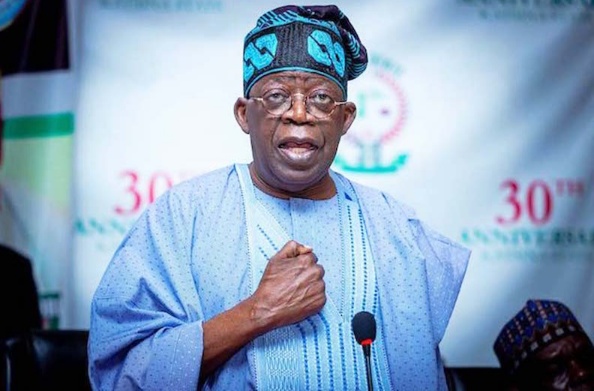Thelma Osatohanmwen
President Bola Tinubu has defended his administration’s decision to remove fuel subsidy and liberalize the foreign exchange market, asserting that these policies have positioned Nigeria at the forefront of economic growth.
Speaking at the World Economic Forum Special Meeting on Global Collaboration, Growth, and Energy for Development in Riyadh, Saudi Arabia, Tinubu emphasized the necessity of making tough but essential decisions to reposition Nigeria’s economy.
Ajuri Ngelale, presidential spokesperson, disclosed the importance of subsidy removal, saying that it will prevent Nigeria from going bankrupt and reset the economy’s trajectory towards growth.
He acknowledged the challenges associated with the decision but stressed that leadership entails making difficult choices when needed.
Addressing concerns about the impact of subsidy removal on vulnerable populations, Tinubu assured that measures were taken to cushion the effects and ensure equitable distribution of economic drawbacks.
He underscored the government’s commitment to transparency, accountability, and fiscal discipline, emphasizing the importance of focusing on Nigeria’s growth trajectory.
Regarding currency management, Tinubu asserted that his administration effectively removed corruption-laden arbitrage and artificial value elements in the currency.
By liberalizing the foreign exchange market, he said Nigeria’s local currency can now compete globally, promoting transparency and combating corruption.
Tinubu acknowledged the challenges posed by currency fluctuations and inflation but expressed confidence in the government’s ability to manage turbulence through inclusive governance and effective communication with the public.

